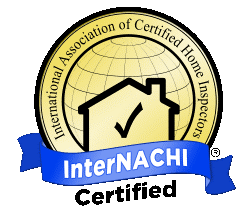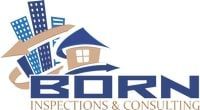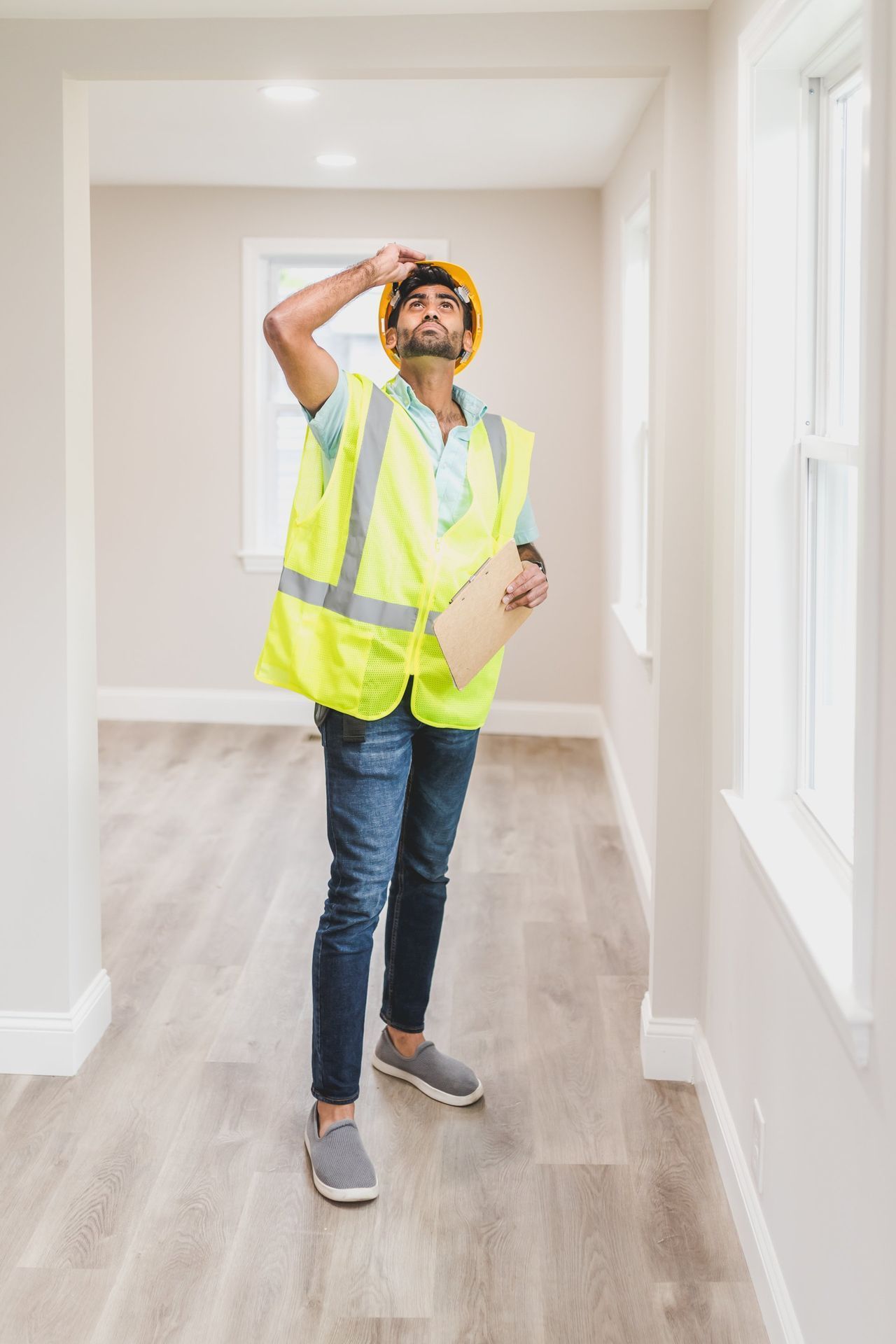Protect Your Home From Risks Brought by Radon
Set-up a radon inspection today
Radon is a radioactive gas that you can't see, smell, or taste. It occurs naturally in the environment and seeps into your home through cracks in the foundation. Radon can enter your home through pipes, vents, and other openings. The EPA estimates that one in 15 homes has elevated levels of radon, putting more than 21 million Americans at risk for developing lung cancer from breathing it in over time.
The only way to know if you have an issue with radon is to have it tested by a professional inspector. If you're concerned about possible exposure to high levels of radon or think that you may have already been exposed to this toxic gas,
contact Born Inspections today! We'll come out and do a complete assessment of your home - including testing for radon - and explain our findings at an affordable cost.
Does Radon Affect My Family?
If you're a homeowner and live in an area with high radon levels, your family is at risk. Radon can get into your home through cracks in the foundation or floor slab. While you may not be able to see it, it's a radioactive gas that can cause lung cancer. Radon is the leading cause of lung cancer in non-smokers and kills more than 20,000 people each year - and that number continues to rise. But there are steps you can take to protect yourself from this silent killer:
- Do a home testing kit
- Hire a professional inspector
The advantages of home testing kits are their affordability, expediency, and convenience. However, these tests are not as accurate as professional tests. To ensure that you get the most accurate results possible, it is recommended that homeowners have their homes professionally tested by a trained professional before making any decisions about addressing the problem.
If you are planning on selling or buying a home in the near future and want to avoid dealing with radon gas remediation costs down the road, it is wise to have your current residence tested for radon gas before making any decisions about selling or buying another house.
What is a Radon Test?
A radon test is a simple, inexpensive way to determine if your home has high levels of radon. A professional inspector will collect an air sample from inside your home and send it to a lab for testing. The results will show whether there are elevated levels of radon in the air you breathe at home.
There are two main types of radon testing equipment: passive and active.
- Passive devices capture radon or its offshoots without the use of electricity, and they can be analyzed in a laboratory at a later date. Charcoal canisters, charcoal liquid scintillation detectors, alpha track detectors, and electret ion detectors are examples of passive instruments.
- Active gadgets, on the other hand, require electrical power and include instruments for ongoing monitoring. Active devices continuously detect and record radon or its offshoots; they're typically more expensive than passive instruments, and their operation calls for inspectors who have received professional training.
How is a Radon Test Performed?
During a radon test, an inspector will collect samples from your basement or the lowest level of the home. The most common way to obtain samples is using air-tight canisters (called alpha track detectors). These devices measure the amount of radon that has been in contact with your home over time by tracking its decay products. Another method is to use an electret ion detector, which tracks the amount of radioactivity in the air. Charcoal liquid scintillation devices also track radioactivity levels but can only be used when there's no visible moisture in the air (moisture will cause false readings). Continuous radon monitors are set up for several days at specific locations throughout your basement or lowest level; these monitors provide real-time monitoring data until they're removed from their placement locations and sent off for testing in a lab setting.
After all, testing is complete, your inspector will present his/her findings to you in person or via written report. If there are high levels of radon gas in the home, then it is recommended that steps be taken to mitigate those levels. This could include sealing up cracks in floors or walls, installing ventilation systems and fans, or even tearing out old carpeting if it is infested with mold spores (which can increase radon levels).
Why is it Important to Have a Radon Inspection in Your Home?
Radon testing is crucial because it has the potential to save lives. Radon gas is a health hazard that comes from the natural decay of uranium in soil, rock, and water. It enters homes through cracks in the foundation and seeps through walls.
Following cigarette smoking, radon is the second most common cause of lung cancer. It has been linked to 21,000 deaths from lung cancer each year in the United States alone! You may not realize it, but radon is a problem in many homes across the country. In fact, according to the Environmental Protection Agency (EPA), about 20% of all homes have elevated levels of radon gas. If you're living in one of these homes, you may be at risk for developing lung cancer - one of the most common types of cancer in America today - or other serious health problems.
Getting your home tested is the only method to find out if it has excessive levels of radon. When you get your home tested for radon, you will be able to know if your home needs further repairs or if it is safe for your family's use. Contact Born Inspection today for unbiased and reliable radon testing services in Anniston, Birmingham, and Huntsville, AL.
Get a Professional Radon Inspection from Born Inspections
When you need a radon inspection, you want to make sure that the company performing it is reliable and trustworthy. Born Inspections is a local radon inspection company with years of experience in the industry. We are licensed and certified to perform radon testing, so when you choose us for your home inspection, you can rest assured that we know what we're doing.
A lot of people have heard about radon but don't know much about it or how dangerous it can be. Radon is an odorless gas produced through natural processes in the ground and trapped inside your home's foundation by concrete walls or floors. Breathing this toxic gas over time can lead to serious health problems such as lung cancer or chronic obstructive pulmonary disease (COPD). If you suspect high levels of radon in your home, call Born Inspections today!
Contact Us
We will get back to you as soon as possible.
Please try again later.

Born Inspections & Consulting
Home Inspections, InterNACHI Inspector, Residential, Inspections, Commercial Property Inspections, Insurance Inspections
Mold Inspections, Pre-sale Inspections, Seller Inspections, Buyer Inspections, Real Estate Inspections, Certified Home Inspector, Certified Home Inspections
Serving: Oxford, AL | Anniston, AL | Munford, AL | Talladega, AL | Old Eastaboga, AL | Lincoln, AL | Riverside, AL | Pell City, AL
Moody, AL | Leeds, AL | Irondale, AL | Mountain Brook, AL | Birmingham, AL | and surrounding areas
Quick Links
Contact Info
Phone:
Email:
Address:
5106 McClellan Blvd, Suite C
Anniston, AL 36206
areas served
© 2024 Born Inspections & Consulting, All Rights Reserved.



